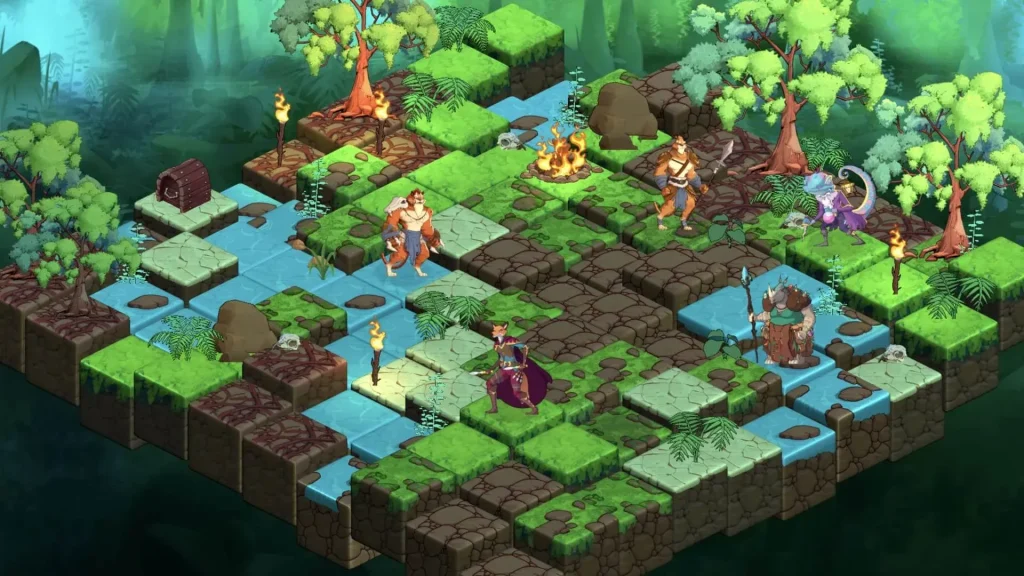RPGs, Strategy, and Adventure sit at the heart of modern gaming, signaling distinct modes of engagement—from character-powered growth and branching narratives to meticulous resource management and large-scale tactics, all while inviting players to explore lore, test choices, and master systems that reward different kinds of problem-solving. This introductory overview explains what each genre promises, how its core mechanics steer your decisions, and why designers increasingly blend elements across titles, often stitching role-playing depth, strategic pacing, and atmospheric exploration into cohesive experiences that feel both familiar and surprising within the wider ecosystem of game genres. In practice, you’ll notice RPGs shaping characters through dialogue and gear, strategy games rewarding precise timing and resource allocation, and adventure games centering on exploration and puzzles, yet many releases fuse these threads to offer a more elastic sense of progression. Understanding these dynamics helps you pick titles that match your preferences and explains why cross-genre blends are becoming common, enabling developers to craft experiences that satisfy multiple appetites in a single purchase. By recognizing how progression, planning, and discovery interact, you’ll navigate a crowded market with confidence and discover games that reward your preferred balance of narrative depth, tactical challenge, and exploratory wonder.
From a semantic standpoint, these experiences can be described as narrative-driven role-playing experiences that emphasize character choice, progression, and meaningful outcomes. Other terms that contextualize the space include tactical decision-making, open-world exploration, environmental storytelling, and branching quests, all of which surface in titles that blend modes of play. By emphasizing player agency and emergent narratives, developers weave experiences where exploration, strategy, and story intersect, creating memorable worlds that reward curiosity. Applying Latent Semantic Indexing principles, we see how related terms co-occur and why cross-genre designs resonate with broad audiences.
RPGs, Strategy, and Adventure: Navigating the Genre Mosaic for Smart Play
RPGs, Strategy, and Adventure each offer distinct pathways into game worlds: role-playing games center on character progression, narrative choices, and customization; strategy games foreground planning, resource management, and decision-making under constraints; adventure games emphasize immersion, exploration, and puzzle solving. Understanding these axes helps players select experiences that fit their playstyle and helps developers push the boundaries of what game genres can achieve.
Across contemporary releases, the lines between RPGs, strategy games, and adventure games blur as designers weave together depth of character growth, tactical planning, and environmental storytelling. When a title blends these elements, players experience a more versatile journey: player agency expands, pacing shifts between tactical moments and exploratory beats, and the world responds to both strategic maneuvers and personal choices.
Blending Game Genres: How RPGs, strategy games, and adventure games inspire cross-genre design
Designers blend mechanics from RPGs with strategy layers or sandwiched adventure puzzles, crafting cross-genre experiences that feel fresh yet familiar. In such hybrids, you might manage a party while plotting supply lines (RPGs + strategy), or explore vast environments with lore that deepens through puzzle solving (adventure + RPG). This cross-pollination keeps game genres dynamic and invites players to invest in multiple facets of the experience.
To choose the right hybrid, look for progression systems that reward both tactical reasoning and character growth, clear interfaces that map resources and skills, and narrative threads that react to your decisions. Evaluate whether the pacing supports moments of strategic planning, action, and discovery, and whether exploration and puzzle solving are meaningfully integrated with the storytelling. By focusing on these indicators, you can find RPGs, strategy games, and adventure games that align with your preferred balance of gameplay elements.
Frequently Asked Questions
How do RPGs, strategy games, and adventure games differ, and why do many modern titles blend these genres?
RPGs (role-playing games) center on character growth, branching narratives, and customization; strategy games emphasize planning, resource management, and tactical decision‑making; adventure games prioritize immersion, exploration, and puzzle‑solving. Modern titles blend these elements to create cross‑genre experiences that reward personal progression, careful planning, and discovery, offering varied playstyles across game genres.
What should I look for when choosing a cross-genre game that combines RPGs, strategy, and adventure elements?
Seek a title with balanced pacing across planning, action, and exploration; look for progression systems that deliver meaningful RPG‑like growth alongside strategic depth; ensure the UI clearly communicates status, resources, and exploration goals to avoid clutter. If you enjoy story-rich moments, tactical decisions, and exploration, a well‑tuned hybrid will reward both strategy and curiosity.
| Aspect | Overview |
|---|---|
| Introduction to the Genre Trio | RPGs, Strategy, and Adventure each emphasize a different axis of play. RPGs center on character progression, narrative choices, and customization; Strategy foregrounds planning and resource management; Adventure prioritizes immersion, exploration, and puzzle-solving. |
| What Each Genre Brings to the Table | RPGs offer personal growth through leveling, skill trees, and branching quests; Strategy rewards forethought, resource management, and planning; Adventure focuses on atmosphere, exploration, and puzzle-solving with environmental storytelling. |
| Overlaps and Blends | Modern games blend elements from multiple genres, creating hybrids (e.g., RPG-Strategy blends or Adventure-Strategy blends) that offer richer, cross-cutting experiences. |
| Key Mechanics Across the Trio | – Character progression and choice; – Tactical planning and resource management; – Exploration and puzzle-solving; – Narrative branching and player agency; – Balanced pace and atmosphere. |
| A Short History | RPGs evolved from tabletop roots into digital character growth and party dynamics; Strategy grew from board wargames to complex simulations of resources and tactics; Adventure started with text-driven exploration and narrative puzzles, evolving into expansive worlds. |
| Design Considerations for Cross-Genre Experiences | Balance pacing, rewards, and UI clarity to avoid clutter while delivering cohesive cross-genre systems. |
| Practical Examples | RPG depth with exploration; Strategy-forward games with RPG-like progression; Adventure-driven titles with strategic overlays. Hybrids demonstrate how the strongest games combine multiple facets. |
| Choosing Your Path | If you crave depth in character and story, seek RPGs and narrative-heavy adventures. If you love tactical planning and resource management, look for strategy games with meaningful progression. If discovery and puzzles drive you, pursue adventure titles with exploration and lore. Hybrids offer a flexible route to sample all three. |
| The Future of Game Genres | Expect ongoing cross-genre blending as technology enables richer systems for progression, simulation, and storytelling. Indie developers especially push mood-driven hybrids, expanding opportunities to combine RPG depth, strategic nuance, and exploratory wonder. |



